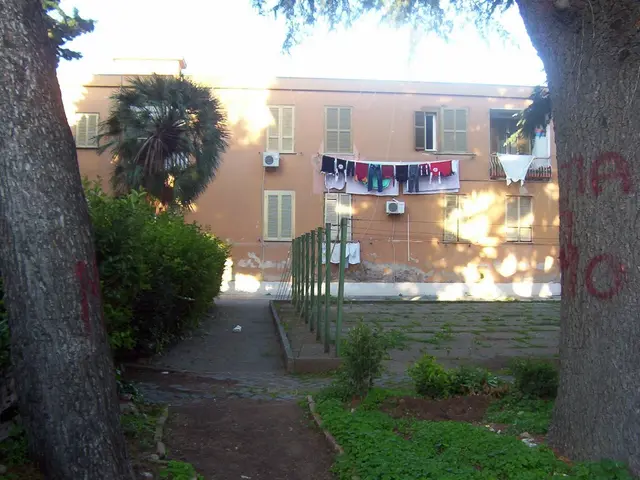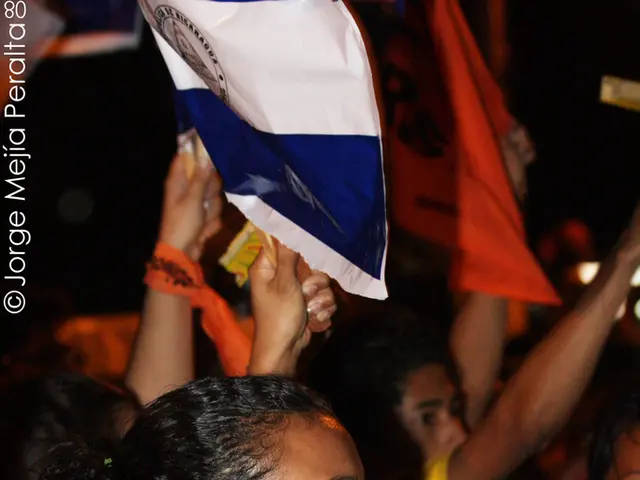Advocacy Groups Mobilize to Aid Ukrainian Patients Suffering from Rare Disorders
In the wake of the Russian invasion of Ukraine, thousands of rare disease patients, including Tetiana Zamorska's son Andrii who suffers from severe generalized recessive dystrophic EB, have been forced to flee their homeland. Tetiana and her family, who require 24/7 care for Andrii, found support from Caritas International after they settled in Poland.
The UN Refugee Agency counted over 5.2 million Ukrainian refugees as of April 25, many of them children. Among these refugees are those with complex rare diseases who need urgent medical attention and supplies. To address this pressing need, several organizations have stepped up to provide aid.
The Columbus Children's Foundation (CCF) and CureDuchenne are collaborating to raise funds for Fundacja Parent Project Muscular Dystrophy in Gdansk, Poland. As of late April, they have managed to raise $17,500 for the foundation. Fundacja Parent Project is using these funds to help care for three families affected by Duchenne muscular dystrophy (DMD), procuring wheelchairs, physical therapy, and Calcort, a steroid used to treat inflammation in DMD.
Debra International, a support and advocacy network for epidermolysis bullosa patients, is also asking for donations to provide medical supplies to those affected by the war. The organization has helped transport one family with DMD from eastern Poland to Warsaw and on to Paris, where it is paying for hotel accommodations.
EURORDIS, an alliance of rare disease patient organizations, is focusing on fulfilling immediate needs of the rare disease community. They are providing bandages for EB patients and respiratory therapy for those with cystic fibrosis.
The Healthcare Education Institute is helping rare disease patients in Ukraine find faster transportation across the border, organizing medical care, providing treatments to hospitals in Ukraine, and coordinating with the Polish government and various aid organizations.
Novartis, a global pharmaceutical company, has donated $3 million to charities supporting Ukrainian refugees. They have also given out cancer and heart treatments, antibiotics, and painkillers.
Despite the aid, the journey from Ukraine to Poland was physically and emotionally difficult for Tetiana Zamorska and her family. However, since settling in Poland, Tetiana has received calls from at least 15 other families affected by EB and offered them advice and financial assistance. Under a law signed by Polish President Andrzej Duda on March 14, Ukrainians can stay legally in Poland for 18 months.
The CCF is leveraging its connection with the Bróndo Hospital in Warsaw, Poland, and other nonprofits in that country to help continue care and treatments for complex rare disease cases. Debra Ukraine, a Ukrainian organization, has received over €10,000 in donations since it started raising money for relief efforts at the end of March.
As the conflict in Ukraine continues, these organizations are working tirelessly to ensure that refugees with rare diseases receive the care they need. The World Health Organization's Surveillance System for Attacks on Health Care reported 164 attacks affecting facilities, transport, personnel, warehouses, medical supplies, and patients, resulting in over 70 deaths as of April 25. The aid provided by these organizations is more crucial than ever in these challenging times.
Read also:
- Parliamentary Meetings in the Federal Diet of Germany this Week
- Doctors' families criticize the proposed legislation affecting their compensation
- Israeli Military allegedly slaughters 25 individuals seeking aid, as Netanyahu declares intention to let Palestinians depart from Gaza.
- Transformed Lives of the Scarred "Hiroshima Maidens" with a Fresh Hope








